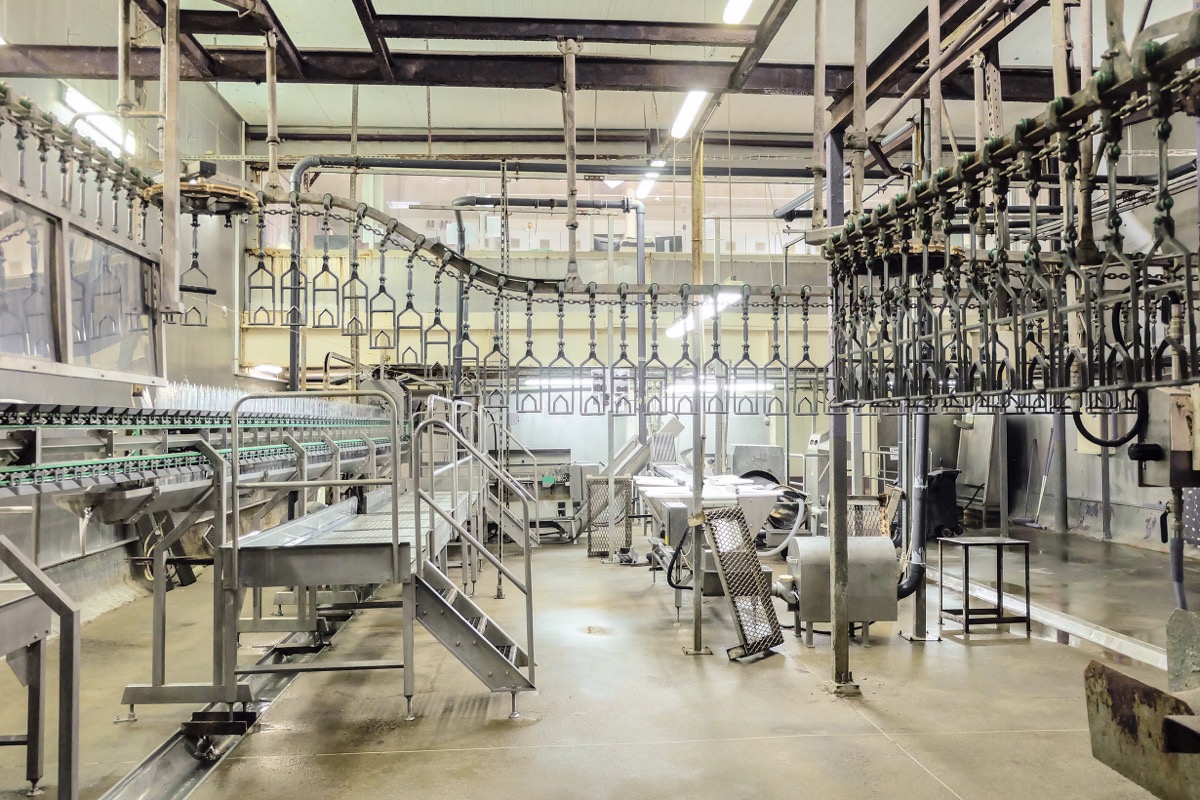More Kids Are Dying in Factories and the Reaction Is Seriously Lacking

A 16-year-old boy was found dead in a poultry factory in Mississippi as a result of an on-the-job accident, according to authorities. The boy’s name was Duvan Tomas Perez. He was a middle school student and immigrant from Guatemala, described as “generous, smiley and very fun” at work. He died screaming for help after getting caught in a piece of machinery. Factory workers rushed to save him, but it was already too late.
Despite the headlines, and ongoing similar stories, the reaction from many in the government seems to be to make things worse. Didn’t we learn this already? Not employ children to work in factories? Wasn’t that the ENTIRE TAKEAWAY from the Gilded Age and the early 20th century? Child labor is bad? It’s really a simple equation. Well, apparently Arkansas and Iowa weren’t playing attention in class.
Instead they were drafting bills that loosen child labor laws, crumpling them up, putting them in their mouths, and firing them at each other through straws like spitballs. Nine other states in the classroom ended up picking those bills up off the floor and thinking, “Hey, this sounds like a good idea,” and deciding to write a few of their own—all while kids are already dying under existing laws that businesses ignore.
The Occupational Safety and Health Administration and the Labor Department’s Wage and Hour Division are currently launched investigations into Perez’s death. Children under the age of 18 are not allowed to work in poultry plants because it is too dangerous, and his employment there was in violation of child labor laws. If found guilty, the poultry plant employing him could be fined upwards of $30,000, a paltry price to pay for the life of a child.
Joe Colee, the manager the facility, said in a statement that “safety is our number one priority” and “our employees are our most valuable asset … we strive daily to work as safely as possible and are truly devastated whenever an employee is injured.” He went on to say that he intends to fully cooperate with authorities at OSHA in their investigation of the child’s death. This is the second time in two years that an employee has been killed at this particular plant, the first occurring in 2021 when an employee was pinned under a machine after it caught him on the sleeve.
According to Debbie Berkowitz, a former OSHA official, the company has a “horrible safety record” and has actively “fought to prevent OSHA from looking for safety violations after previous serious injuries.”
In response to Perez’s death, the federal government has launched an expanded investigation across 11 states in order to crack down on child labor law violations. In all cases, factories are suspected of employing migrant children. The effort is part of a broader Biden administration attempt to eradicate child labor practices in the United States.
Investigators from the Department of Homeland Security and the Justice Department have been attempting to determine whether or not a human trafficking scheme was responsible for bringing migrant children to multiple meatpacking companies across the nation. While investigators did not name the individual companies, it is likely that those companies could face anything from steep financial penalties to criminal charges. Those charges have yet top be filed. As usual, it’s the most vulnerable who are hurt the most by these practices, and loosening of child labor laws would likely have the same effect—although it’s easy to see why conservatives may just consider that a bonus, considering recent reports on what Texas’ state government has been doing at the Mexico border.
A separate Labor Department investigation revealed that the Wisconsin-based Packers Sanitation Services Inc. had employed over 100 children in 13 different locations across eight states. The company paid $1.5 million fines, and a company spokesperson maintained that the children had used falsified IDs to get the job. Meanwhile in Alabama, four different Hyundai-Kia supply chain factories were found to have employed children over the past four years. In the town Greenville, a 14-year-old Guatemalan girl was discovered working on the auto parts assembly line.
What’s perhaps most disturbing in the discussions around loosening child labor laws is the prevalence of the term “minor,” which is a rhetorical term that allows legislators to talk about sending children to work in factories without ever having to use the word “child.” A “minor” is allowed to do things with a parent’s permission, things to which a “child” should never be subjected. This is exactly the language that is being used in an Iowa bill that would allow children as young as 14 to work in dangerous industries such as mining, logging, and slaughterhouses. Governments across America are writing statements condemning child labor with one hand, and signing bills approving it with another.
(featured image: N-Sky/Getty Images)
Have a tip we should know? tips@themarysue.com